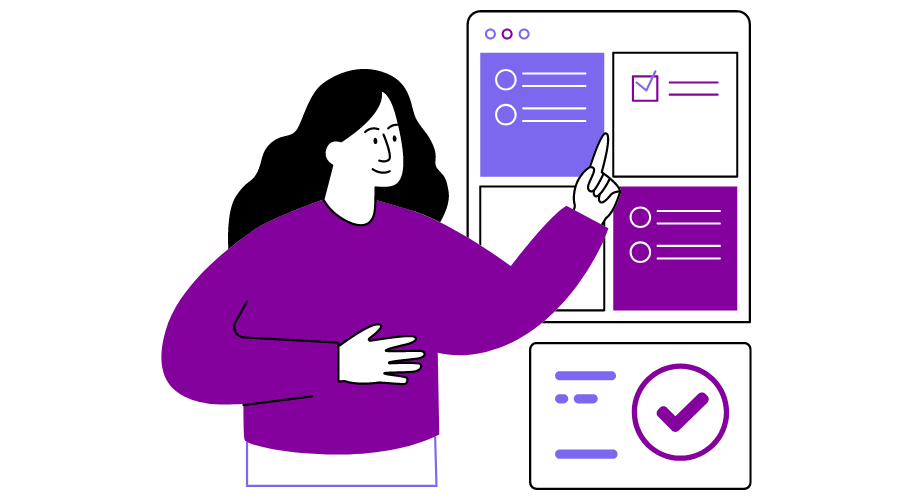
In a world dominated by technology, the concept of the “user” has taken on a whole new meaning. It’s no longer just a term describing a person interacting with a product or service but a complex and multifaceted idea at the heart of modern business.
But what is the true meaning of a user? Is it simply someone who clicks a button or swipes a screen?
Or is it something more profound that touches on the essence of what it means to be human?
In this article, we’ll explore the many different facets of the user, from the psychological and emotional factors that drive our behavior to the technological innovations that shape our interactions.
So buckle up, get ready to expand your mind, and join us to discover the true definition of the user in today’s fast-paced digital landscape.
What Is User?
User Definition:
A user is a person or entity that engages with a product, service, or system in some way, such as by using it, interacting with it, or consuming it.
Importance of Understanding the Concept of “User” in Business
Understanding what a user means is essential in business for several reasons.
One important reason is that it assists companies in creating products and services tailored to their customer’s needs and preferences. By understanding their users, businesses can design products and services that are intuitive, easy to use, and visually appealing.
This approach, known as user-centered design, can lead to better user experiences and higher engagement and satisfaction levels.
Another reason why knowing users is crucial in business is that it enables companies to create targeted marketing campaigns which resonate with their audience. By understanding the needs and desires of their users, businesses can identify their target market and create messaging and advertising that speaks to specific user segments.
This can increase the effectiveness of their marketing efforts and generate more leads and conversions.
Additionally, understanding users can help businesses identify areas for innovation and develop new products and services that address their users’ needs.
By staying attuned to their users’ pain points and desires, businesses can create new products and services that differentiate themselves from their competitors and stay ahead of the curve.
Understanding users is critical for businesses to succeed in today’s competitive marketplace.
Types of Users in Business
The four user types are achievers, socializers, players, and explorers. They are often used in the context of gamification and user engagement. These types were identified by Richard Bartle, a British video game designer, based on players’ motivations for playing games. Here’s a brief overview of each type:
Achievers
These users are motivated by achieving goals, accumulating points, and reaching the highest levels of a game. They enjoy the challenge of overcoming obstacles and completing tasks.
Socializers
These users are motivated by social interactions and building relationships with other players. They enjoy collaborating with others, sharing experiences, and forming communities.
Consisting of extroverted individuals, socializers communicate with other users via the product.
Players
These users are motivated by the thrill of competition and winning. They enjoy testing their skills against other players and often strive to be the best.
Explorers
These users are motivated by discovering new things and exploring the game world or the product. They enjoy uncovering hidden secrets, trying new things, discovering every new update, and experimenting with different strategies.
Understanding these user types can help businesses design products and services that cater to their users’ motivations and preferences, increasing engagement and satisfaction.
The Role of Users in Business
Users play a central role in business as they are the ultimate decision-makers regarding the success or failure of products and services. Understanding users is key to creating products and services that meet their needs and expectations and developing marketing strategies which effectively reach and engage them.
One important role that users play in business is as a source of revenue. Without users purchasing products and services, businesses could not generate revenue or sustain themselves in the marketplace. Understanding users’ buying behaviors, preferences, and demographics is critical for businesses to effectively market and sell their offerings.
Users also play a role in the ongoing evolution of products and services. Through user feedback and usage data, businesses can gather insights that help them improve their offerings and develop new products that better meet user needs. This iterative process is essential for businesses to stay competitive and relevant in today’s fast-paced marketplace.
Finally, users can advocate for businesses, promoting their products and services through word-of-mouth and social media. This kind of organic marketing can be precious for businesses who are on the look out to expand their reach and acquire new customers.
The bottom line is that users are a key component of business success.
FAQs
If a person is a user, it means they engage with a product or service in some way, whether by using it, interacting with it, or consuming it. The term “user” is commonly used in the context of technology and digital products but can also apply to physical goods or services
Typically, the user is also called an end user. However, another term for the user could be “consumer,” “customer,” or “client,” depending on the context in which you use it.
An example of a user in a software sense could be a freelance graphic designer who uses graphic design software to create stunning visual designs for clients. As the user, the designer interacts with the software daily, using its features and tools to bring their creative vision to life.
